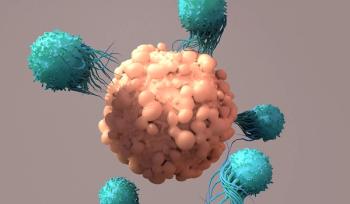
Living Drugs for Immunotherapy (PDA/FDA Joint Regulatory Conference 2023)
Part of the session "Transforming Medicine: Unleashing the Potential of Cell and Gene Therapies," Sadelain discusses CAR-T cells for immunotherapy and the future of cell/gene therapies.
In his part of the session "Transforming Medicine: Unleashing the Potential of Cell and Gene Therapies" at the PDA/FDA Joint Regulatory Conference 2023, Michel Sadelain, MD, PhD, Director, Center for Cell Engineering; Stephen and Barbara Friedman Chair, Memorial Sloan Kettering Cancer Center, discusses CAR-T cells and living drugs for immunotherapy.
Sadelain: Really, hurdles stemmed from the fact that this was an untested and unproven technology in the clinical realm. And also in the pharmaceutical industry. The medicine here, the drug, is not a chemical or a small molecule. It's not even a protein. It's a cell. And on until recently, cells have never been approved as drugs. On top of that, these are not just cells, human cells, but they're genetically engineered cells. And as you may recall, back a few decades ago, there was a lot of concern, and even fear that genetic engineering could prove to be harmful in some ways. So this, so developing this approach did indeed go against the grain of many received ideas back in the 90s. But we now see that all that changed with the first approvals of CAR-T cells approvals by the US FDA, back in 2017.
Sadelain: The term living drugs is a term I actually introduced in an interview to the New York Times a little over 10 years ago when explaining what a CAR-T cell is to the reporter. CAR-T cells make use of a synthetic receptor for antigen, which is what we named A chimeric antigen, sorry, which is what we named primerica antigen receptor or CAR. That instructs the T cell to recognize an antigen of our choosing, and to further have the T cell to do something about it, which means to kill the tumor cell. And not only that, it also tells the T cell to multiply. And so this is a medicine that multiplies that expands the numbers in the body of the patient. And it also makes use of viral vectors to introduce the gene coding for the synthetic receptor into those T cells. So in that context, it seemed like one way of summarizing it was to describe these as living drugs.
Sadelain: A round of CAR-T cells first, what we see today is the approval of already six different products for them for different refractory B cell malignancies, and two of them for refractory, multiple myeloma. As we all know, there hasn't yet been success and solid tumors. And many groups though, and many in academia and in industry, are currently pursuing the goal of adapting this very powerful technology to those solid tumors. What I think is equally interesting, though, is to see today CAR-T cells being investigated beyond cancer. And there have been very recent reports of remarkable early results in forms of autoimmune disorders, in particular, systemic lupus erythematosus. This makes use of the exact same CAR-T cells that have been developed for B cell malignancies targeting this antigen that we anti identified many years ago called CD19, but put to use in patients with autoimmunity. I think it's fair to say that this is triggering widespread enthusiasm today to explore CAR-T cells and a range of autoimmune disorders. And CAR-T cells could also be useful in intractable infections or different settings of transplantation. Now, beyond CAR-T cells, cell and gene therapies are today really coming of age. After a good three decades of exploring different vector systems, devising different manufacturing schemes, I think it's fair to say that a number of ex vivo and in vivo genetic engineering strategies are showing, are starting to show real results for patients. So I think we have to expect more and more of these coming to the fore.
Newsletter
Stay at the forefront of biopharmaceutical innovation—subscribe to BioPharm International for expert insights on drug development, manufacturing, compliance, and more.




